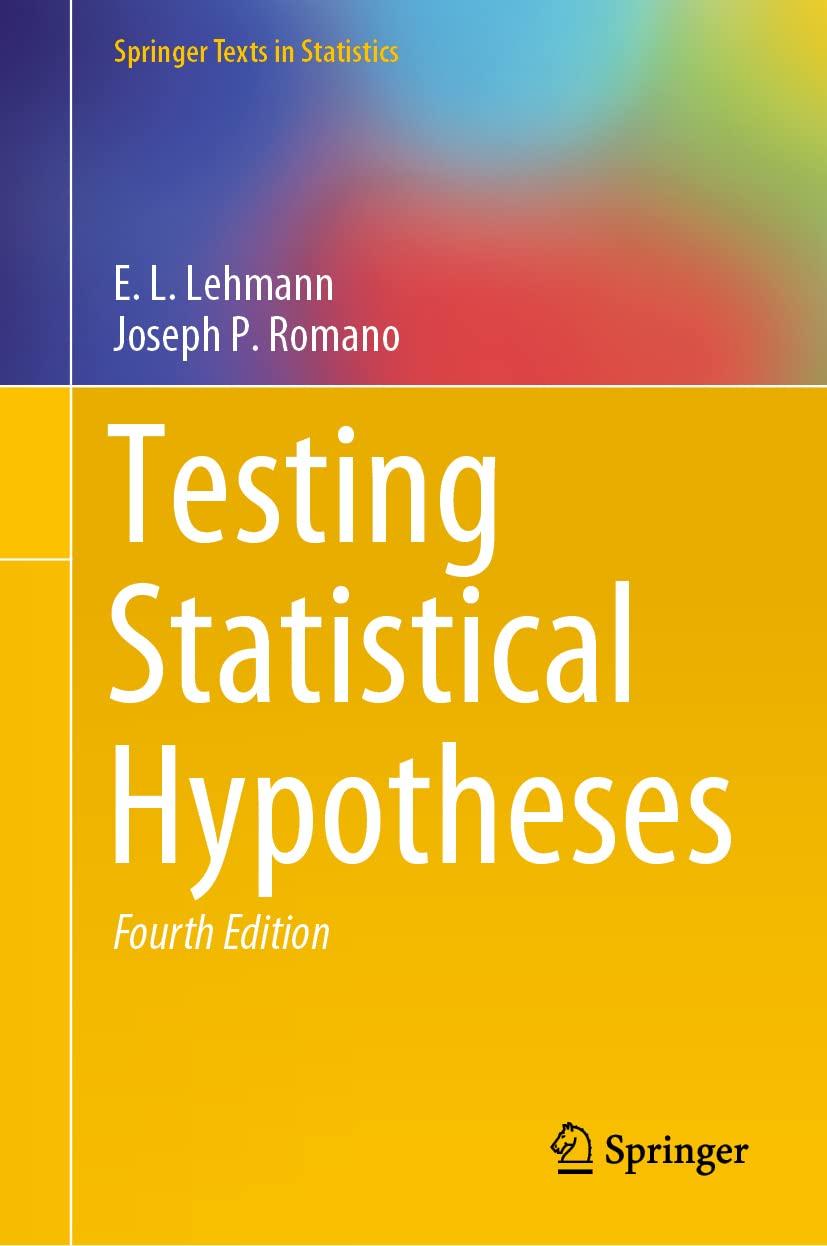Let Zi have a continuous cumulative distribution function Fi (i = 1,..., N), and let G be
Question:
Let Zi have a continuous cumulative distribution function Fi (i =
1,..., N), and let G be the group of all transformations Z i = f (Zi) such that f is continuous and strictly increasing.
(i) The transformation induced by f in the space of distributions is F i = Fi( f −1).
(ii) Two N-tuples of distributions(F1,..., FN ) and (F 1,..., F N ) belong to the same orbit with respect to G¯ if and only if there exist continuous distribution functions h1,..., hN defined on (0,1) and strictly increasing continuous distribution functions F and F’ such that Fi = hi(F) and F i = hi(F
).
[(i): P{ f (Zi) ≤ y} = P{Zi ≤ f −1(y)} = Fi[ f −1(y)].
(ii): If Fi = hi(F) and the F i are on the same orbit, so that F i = Fi( f −1), then F
i = hi(F
) with F = F( f −1). Conversely, if Fi = hi(F), F i = hi(F
), then F i =
Fi( f −1) with f = F−1(F).]
Step by Step Answer:

Testing Statistical Hypotheses Volume I
ISBN: 9783030705770
4th Edition
Authors: E.L. Lehmann, Joseph P. Romano






